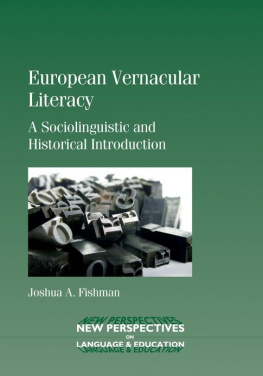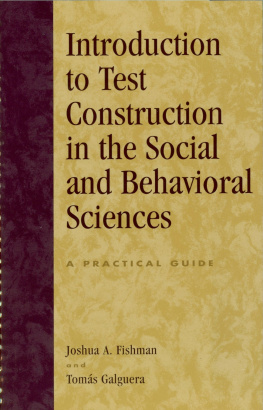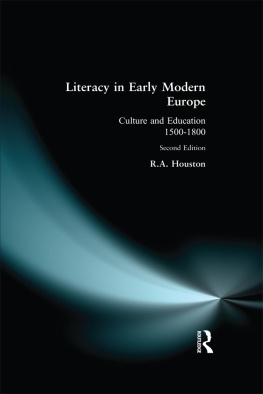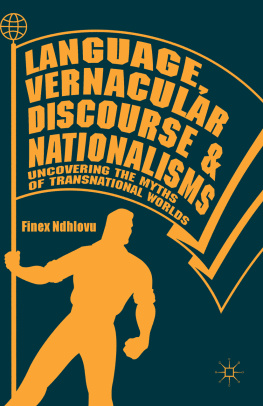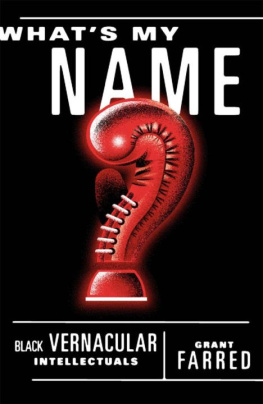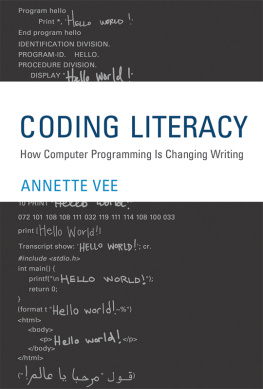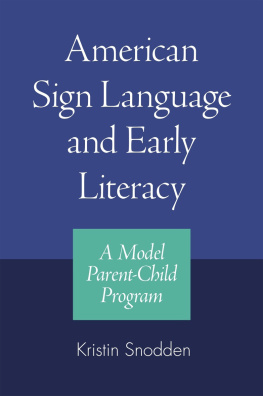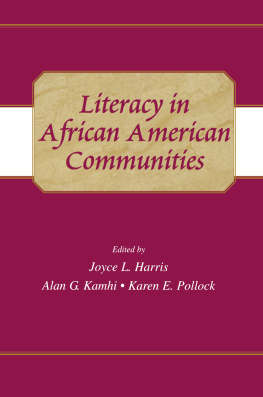
NEW PERSPECTIVES ON LANGUAGE AND EDUCATION
Series Editor: Professor Viv Edwards, University of Reading, Reading, Great Britain
Series Advisor: Professor Allan Luke, Queensland University of Technology, Brisbane, Australia
Two decades of research and development in language and literacy education have yielded a broad, multidisciplinary focus. Yet education systems face constant economic and technological change, with attendant issues of identity and power, community and culture. This series will feature critical and interpretive, disciplinary and multidisciplinary perspectives on teaching and learning, language and literacy in new times.
Full details of all the books in this series and of all our other publications can be found on http://www.multilingual-matters.com, or by writing to Multilingual Matters, St Nicholas House, 3134 High Street, Bristol BS1 2AW, UK.
Library of Congress Cataloging in Publication Data
A catalog record for this book is available from the Library of Congress. Fishman, Joshua A.
European Vernacular Literacy: A Sociolinguistic and Historical Introduction/Joshua A. Fishman.
New Perspectives on Language and Education Includes bibliographical references and index.
1. English languageVariationEurope. 2. English languageStudy and teachingEurope. 3. Languages in contact. 4. Linguistic change. I. Title.
PE2751.F54 2010
306.44089-dc22 2010021279
British Library Cataloguing in Publication Data
A catalogue entry for this book is available from the British Library.
ISBN-13: 978-1-84769-478-2
Multilingual Matters
UK: St Nicholas House, 3134 High Street, Bristol, BS1 2AW, UK.
USA: UTP, 2250 Military Road, Tonawanda, NY 14150, USA.
Canada: UTP, 5201 Dufferin Street, North York, Ontario, M3H 5T8, Canada.
Copyright 2011 Joshua A. Fishman.
All rights reserved. No part of this work may be reproduced in any form or by any means without permission in writing from the publisher.
The policy of Multilingual Matters/Channel View Publications is to use papers that are natural, renewable and recyclable products, made from wood grown in sustainable forests. In the manufacturing process of our books, and to further support our policy, preference is given to printers that have FSC and PEFC Chain of Custody certification. The FSC and/or PEFC logos will appear on those books where full certification has been granted to the printer concerned.
Typeset by Techset Composition Ltd., Salisbury, UK.
Printed and bound in Great Britain by Short Run Press Ltd.
| Elyinken, Noamken, Shai-li Reyzelen, |  |
| Un Sonyelen |  |
| Fir neshomelekh |  |
| vemen ikh hob tsu fardanken |  |
| mayn tsveyte yungshaft! |  |
| Halevay zol yidish bay aykh lebn |  |
| un zikh redn, leyenen un zingen |  |
| gring un hanoedik! |  |
| Far aykh alemen a mantonele |  |
| Funem gantsn hartsn! |  |
(Translation of dedication)
To Elyinke, Noam, Shai-Li Reyzelele and Sonye-Elena,
Four new souls who have given me
My second childhood
May Yiddish live within them
And may speaking, reading and singing it
Flow easily and happily from within them!
A gift for all of you
With all my heart!
Contents
Chapter 1
Why Has Interest in Languages and Literacies Increased So Much Lately?
Language watchers, such as writers, intelligent readers, linguists, teachers, journalists and literary critics, and even ordinary educated citizens and writers of letters to the editor of their local newspapers, have increasingly noted that English has been changing before their very eyes. In some circles a construction such as between you and I, which is heard so frequently in casual speech, is considered to be perfectly OK even in print. Others will accept it as being correct only in some contexts but not in others. Still others will not accept it at all. Things change may seem to us to be an obvious observation, but few of us stop to think that just four or five centuries ago, even English as a whole was not considered appropriate for written or for printed purposes by the best educated and most literate segments of English society. Before we decide whether this latter change (namely the eminently print-worthy nature of English in practically everyones eyes) was a good or bad development, let us pause to suspend judgment and first to inquire how, where and when such changes occurred, whether they also occurred with other languages and, indeed, whether they are still occurring to certain languages today. Indeed, answering the latter questions may actually give us some better perspective on how to evaluate between you and I and to understand why many (most?) of those who would employ the latter construction would never consider between you and we or between you and they as acceptable, whether in print or in speech. Furthermore, even if we accept that English is changing rapidly in some respects, for some users (speakers/writers), and in certain functions (e.g. newspaper articles but not in State of the Nation addresses), we must also quickly admit that some features of English have remained quite change-resistant, even obdurately so, in ways that many would characterize as self-punitive (e.g. its wide departure from regular sound-letter correspondences). Of course, beauty is in the eye of the beholder, but there cannot be many great languages out there in which the simple oo-sound (as in moo!) is also spelled ue (as in true), ough (as in through), ew (as in flew) and just plain o (as in who). It is a wonder that anyone learns how to read and write a language as orthographically inconsistent as that!
The latter issue is even more basically related to the rise of vernacular literacy, the basic topic of this brief book, than is the former one which is concerned merely with the correctness judgments for a particular grammatical form. Actually, however, we will ultimately see that both of these issues are strongly related to each other and to our underlying theme, because they are both aspects of standardization, without which no accomplished literacy nor enduring greatness judgments are possible. Standardization requires the acceptance of authoritative deciders in questions of language as well as disciplined acceptors of that authority. The coming into being of either of these authority-related dramatis personae may take centuries to develop and even when they both already are in place, it moves nevertheless (i.e. the language continues to change since variability is part of the human condition per se), at least as long as the language is alive. Clearly this book is about a difficult adventure: to attempt to tame the living and yet to keep it alive, creative and truly human. Literacy is surrounded on both sides: by too little standardization on the one hand and by too much on the other. There is no way of avoiding criticism for those engaged in literacy efforts. No matter what it is that they do, they are unavoidably damned by some if they do and damned by others if they dont.

